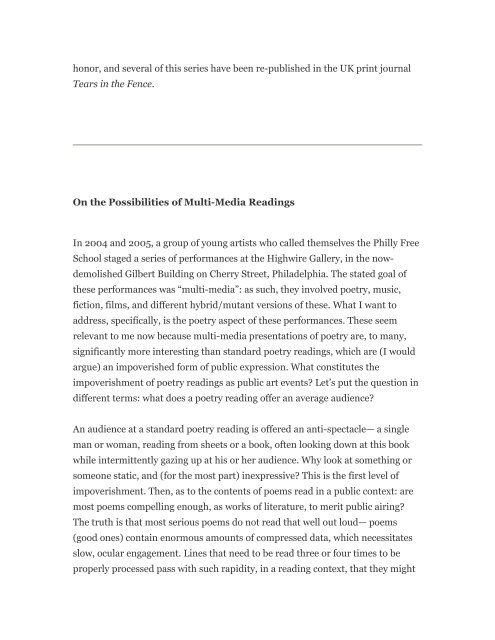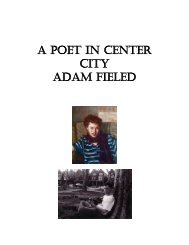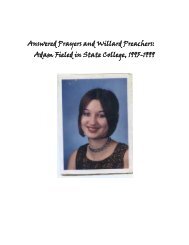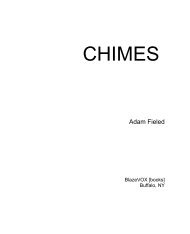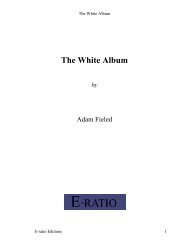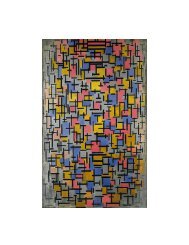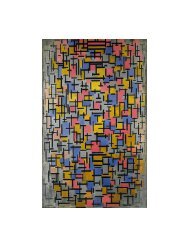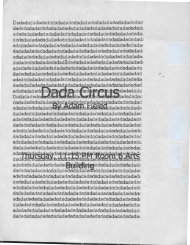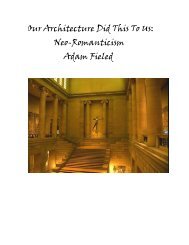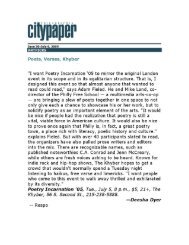FROM OTOLITHS 16: Editor Interview
A pdf from Otoliths Issue # 16: Ed. Interview with Adam Fieled and his article about the Philly Free School
A pdf from Otoliths Issue # 16: Ed. Interview with Adam Fieled and his article about the Philly Free School
Create successful ePaper yourself
Turn your PDF publications into a flip-book with our unique Google optimized e-Paper software.
honor, and several of this series have been re-published in the UK print journal<br />
Tears in the Fence.<br />
On the Possibilities of Multi-Media Readings<br />
In 2004 and 2005, a group of young artists who called themselves the Philly Free<br />
School staged a series of performances at the Highwire Gallery, in the now-<br />
demolished Gilbert Building on Cherry Street, Philadelphia. The stated goal of<br />
these performances was “multi-media”: as such, they involved poetry, music,<br />
fiction, films, and different hybrid/mutant versions of these. What I want to<br />
address, specifically, is the poetry aspect of these performances. These seem<br />
relevant to me now because multi-media presentations of poetry are, to many,<br />
significantly more interesting than standard poetry readings, which are (I would<br />
argue) an impoverished form of public expression. What constitutes the<br />
impoverishment of poetry readings as public art events? Let’s put the question in<br />
different terms: what does a poetry reading offer an average audience?<br />
An audience at a standard poetry reading is offered an anti-spectacle— a single<br />
man or woman, reading from sheets or a book, often looking down at this book<br />
while intermittently gazing up at his or her audience. Why look at something or<br />
someone static, and (for the most part) inexpressive? This is the first level of<br />
impoverishment. Then, as to the contents of poems read in a public context: are<br />
most poems compelling enough, as works of literature, to merit public airing?<br />
The truth is that most serious poems do not read that well out loud— poems<br />
(good ones) contain enormous amounts of compressed data, which necessitates<br />
slow, ocular engagement. Lines that need to be read three or four times to be<br />
properly processed pass with such rapidity, in a reading context, that they might


